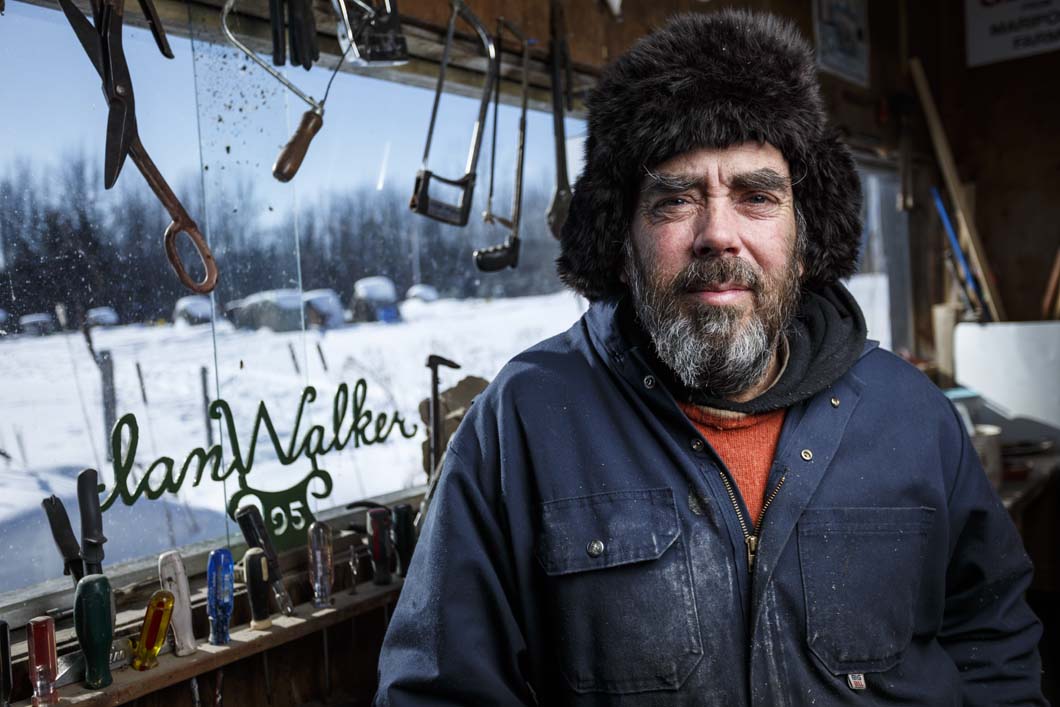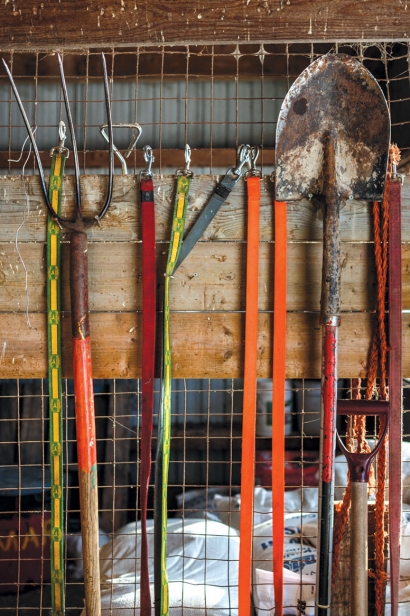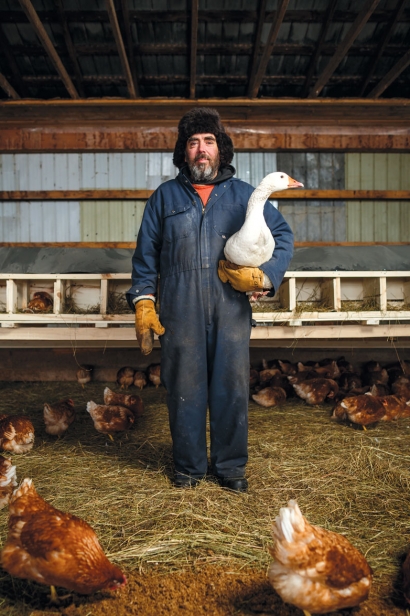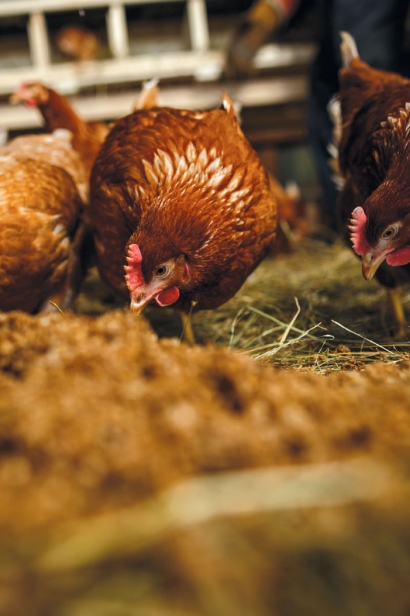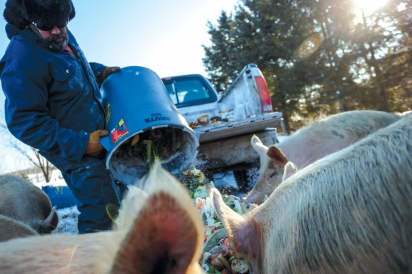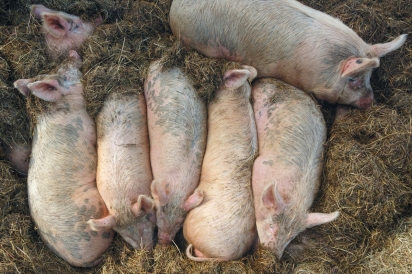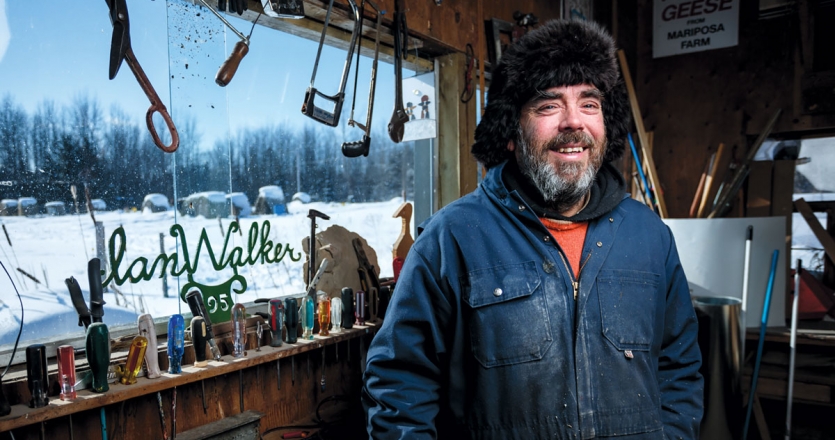Working for Food: Ian Walker, Mariposa Farm
The best food is always rooted in place and season. Take ratatouille. It is hard to understand ratatouille until you have a garden full of eggplant, tomato and zucchini threatening to wilt into nothing more than a Franciscan study in plant growth. When that happens, ratatouille practically makes itself.
This approach to cooking, making the most efficient use of the earth’s precious nutrients and transforming them into flavourful dishes, leads to great cuisine. A whole set of dishes, techniques and styles of food are derived from the interplay of abundance, scarcity and season. When there is an intimate knowledge of how to work the land in each season and how to make the best use of its bounty, vibrant food cultures are primed to evolve.
Farmers understand the economic imperative in choosing seasonal ingredients. The business of farming can be broken down, more or less, into two distinct models: intensive and extensive. The intensive farm grows large volumes of a small variety of crops or livestock (think vast fields of wheat or rows of chicken barns) on large plots of land. Alternatively, extensive farming grows a large variety of food on an often-smaller piece of land, relying on higher margins, shorter supply chains and more frequently value-added products (such as preserves and on-farm restaurants) for profitability. Increasingly, extensive farming is being touted by authors such as Michael Pollan, chefs such as Dan Barber, and even the United Nations, as the most sustainable way to grow food for the planet. Small farms become highly integrated within their local markets and help consumers develop a better understanding of what food is grown in and around their cities.
While this might be news to some of us, it isn’t to Ian Walker. Having purchased the farm that would become known as Mariposa at the age of 19, Ian has spent the past 30 years building an extensive farming business that is rooted in two firm values: environmental sustainability and growing delicious food.
“I’ve always had a passion for agriculture”, says Walker as he sits in his barn in Plantagenet, a short drive east of Ottawa. “As life goes on, I realize that my passion for agriculture is sometimes overrun by my passion for the environment, so I try really hard to make the two of them work together. As a result, I am a lot less efficient than many farmers, but I’m still pretty efficient and certainly very sustainable.”
True to many small-scale farms, the business of Mariposa isn’t based on farming alone. While Mariposa grows lots of vegetables and raises pork, duck and geese, it also sells some of the best cheese and foie-gras in the region. Its on-site restaurant serves a popular Sunday brunch and the farm often plays host to various events such as weddings and conventions. At the same time, Walker’s partner, Suzanne Lavoie, keeps a couple of Jersey cows and makes incredible cheese and butter that, sadly, cannot leave the farm on account of dairy-board regulations.
Walker’s particular brand of extensive farming includes not just making use of his own farm’s compost, but taking it off the hands of his customers. The local restaurants that are the largest consumers of Mariposa pork also pay a small fee for the farm to come by and collect kitchen scraps (not table scraps), which make up a part of the pigs’ diet on the farm.
Walker’s original inspiration for the practice came from seeing all of the good organic waste produced by restaurants being thrown directly into the garbage. “It would make me crazy to see peeled potatoes, on top of the soda cans, on top of the Saran Wrap,” he said. In the beginning, the kitchen waste was collected free of charge, but as Walker and Lavoie realized the cost of travelling into town, they began to charge for the service, losing no customers in the process. Rather, they have made organic waste collection a tiny part of the farm’s business — an economical, self-sustaining, environmental program.
The pig-food program has other benefits, like fertilization. “When I pick up the pig food there are egg shells in there, there are coffee grinds in there, there are lemons in there — all this stuff that the pigs clearly don’t eat, but this is all very good compost, and this is very good and goes into the ground.” Working with the animals has proven to be a very good system for the farmland. For more than 15 years, Walker has relied on the animals, rather than machinery and other fertilizer, to prime his vegetable gardens.
“That is the complete cycle of the pigs”, says Walker, “to see where the ground that they are on is very fertile in the spring so you can take full advantage of that and plant your crops on it, which works really well.”
For chefs and consumers, closer proximity to farmers means getting higher-quality food produced by people they can meet, on farms they can visit. For farmers, distributing locally means a closer relationship with the finished product and the customers who appreciate it. For everyone, regional proximity lets other, often non-commercial, relationships develop between farmers and urban folk. Walker and Lavoie share their expertise with gardeners and farming interns, as well as cooks, writers, and cheese fanatics, who want to better understand the ins and outs of producing delicious, sustainable food.
“I try hard to make agriculture roll with the environment as well as rolling with people. And I think it’s very important that we try to do it on a larger scale, and keep the connection as open as possible with the people who are eating the food — which is everybody, in my case it’s chefs — so they understand what’s going on and how the food is moving through the system. And that’s sort of my role: I really think that it is important for me to teach them that ... this is how it goes and this it how it works.”
Farmers such as Walker and Lavoie are influencing great cuisine in Ottawa, and it is impossible to ignore their importance as stewards of the land, enabling them to produce the best quality food possible while helping to foster a vibrant local food culture. As the farmer’s market system continues to expand, and more and more restaurants opt to buy locally, people are reconnecting with the food that is being grown around the city and those who are growing it.
In the early days, there were three chefs who purchased from Mariposa: John Taylor, Robert Bourassa and Kurt Waldele. Trailblazers in Ottawa’s culinary scene, they were among the first to source locally and to build relationships with small-scale farmers. According to Walker, Mariposa now supplies meat, vegetables, and resale products to about 150 restaurants in the Ottawa/Gatineau region. He is excited to see what he calls his “restaurant family” continue to grow.
“It’s a really dynamic scene in Ottawa. They’re all very close together and I like being part of that team”.
As the number of people interested in local, seasonal fare continues to increase, so do the odds that a spectacular regional cuisine will eventually emerge. Here’s hoping people such as Ian Walker help Ottawa find its ratatouille.


